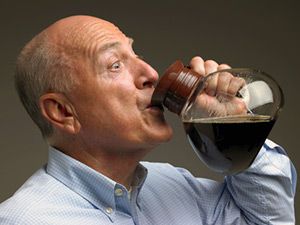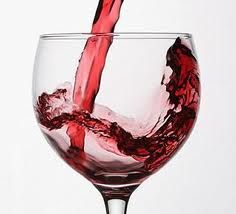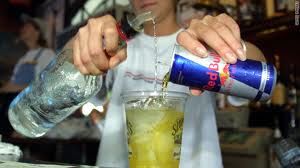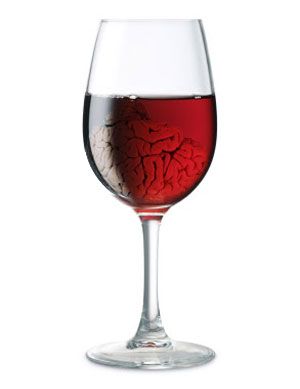Alcoholism
Why Black Coffee Can’t Sober You Up
Caffeine + inebriation = a wide–awake drunk. Only time breaks booze down.
Posted December 13, 2012

Coffee and energy drinks can't sober you up. Only time can.
So many readers responded to the earlier myth–buster that “we only use ten percent of our brains” that I am offering up another misconception to ponder. Given that coffee or any source of caffeine perks you up, it seems logical to many people that coffee sobers you up.
Sorry, but it isn’t remotely true. The only thing the pairing of coffee and intoxication gives you is a wide–awake drunk. Cold showers, a brisk run in freezing weather, and other home remedies, such as gulping concoctions of Tabasco and hot chilies, won’t sober you up either. When you’ve had too much to drink the only thing able to get the alcohol out of your system is TIME. Here is why:
Alcohol metabolism follows what pharmacologists call “zero–order kinetics,” meaning that nothing can speed up or slow down its burn rate in the body’s furnace. Alcohol (the ethanol content in liquor, wine, and beer) is an exception to the linear dynamics that governs the metabolism of most other substances. “Linear” means that if you load up on the material being metabolized, its rate of consumption speeds up. An analogy would be to a garden hose: the more your turn up the pressure the faster the water shoots out. This can’t happen with alcohol. If you quickly knock down drinks you’ll just get higher and higher blood alcohol levels and the negative effects that go with it.
The enzyme that does this heavy lifting—the one with zero–order kinetics—is called alcohol dehydrogenase. This enzyme can handle 1.5 ounces of it per hour. That works out to 1 stiff drink or 4 ounces of wine. Since most imbibers exceed this (and note that typical wine–glass servings contain 6 to 8.5 ounces), it is easy to see how your liquor accumulates.

One "serving" is 4 oz, yet most glasses are 6 to 8.5 oz
For instance, for a night on the town it can take six hours or more for the drinks to clear your system. It follows that heavy drinkers, very often, still have significant blood alcohol levels when the drive off to work the next morning—a disturbing thought if you are on the road, too. Worse, these drivers are oblivious to the fact that they are driving impaired.
Drinking a tall Starbucks or downing a caffeine–loaded energy drink is not a wise move. You’ll feel more alert but your judgment will still be impaired. Clouded by the alcohol you’ll feel that you can when you actually can’t. This is why alcohol is such a common factor in accidents and fatalities.
The message of 1 drink per hour bears repeating. Remember, though, that it is merely a rule of thumb. Nine different variations of the dehydrogenase enzyme complicate matters: not everyone burns alcohol at exactly the same rate. These naturally occurring variations may explain why some people are highly sensitive to alcohol while others can apparently “hold their liquor” without too many ill effects. Researchers even suspect that individuals born with a certain variation may be susceptible to alcoholism or other addictions.

You think you can, but you can't. Stimulants give a false security
Finally, you sometimes hear that alcohol has so many calories because “it’s all sugar.” But it isn’t a sugar at all. The former Chemistry major in me can’t help pointing out that it belongs to a different class of molecules called—wait for it—alcohols. Confusingly, perhaps, there also exist alcohols called sugar alcohols (e.g., sorbitol) that start out as sugars but end up as something else. The chemical suffix will tell you what group a given substance belongs to. Sugars end in “ose” (glucose, sucrose, fructose), whereas alcohols ends in “ol” (ethanol, methanol, hexanol).
One more thing: alcohol doesn’t kill brain cells. If it did even casual drinkers would notice permanent effects right away. Yet another truism to be tossed out along with other myths. Cheers.
Follow me @Cytowic on Twitter, Like my page on Facebook or visit my Website

Alcohol's effect on the brain is complex; it doesn't "kill brain cells," but heavy use causes long term damane


